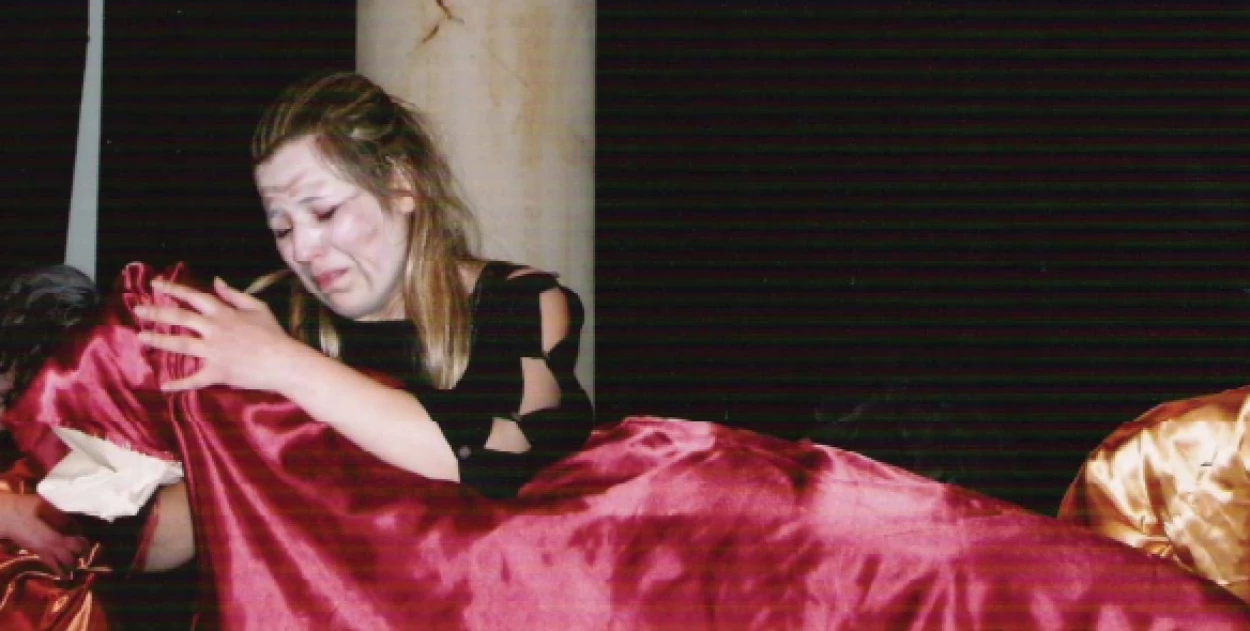The suppliants (Euripides)
Debut: 26 April, 2006
The suppliants by Euripides
Staging: Carlos Jesus, Carla Braz
Translation: José Ribeiro Ferreira
Synopsis
The suppliants by Euripides, represented in the context of the Peloponnesium War (431-404 BC), entail an all-time acute and suffered reflection on the consequences of war. The choir at the origin of the play’s title consists of the mothers of the seven generals who perished at the siege of Thebes, Polynices’s allies when he sought to regain power from his brother Eteocles. From a mythological perspective, the play comes in the direct sequence of the Aeschylus’s Seven against Thebes, Sophocles’s Oedipus at Colonus and Euripides’s Phoenissae, dealing with the same theme as Sophocles’s Antigone – the duty to pay funeral honours to the dead. The myth is already a central milestone in the Epic Cycle, with the works Thebaid and Epigoni, from which we have only few fragments. The background of the play is the shrine of Eleusis, to which Adrastus, old king of Argos, and the seven supplicating mothers, go to, to ask Aethra to convince her son Theseus to reclaim from Creon the dead bodies of the seven generals. Reluctant at first, Theseus accepts the task. In the meantime, a Theban herald arrives, telling Creon’s opposite action, what takes the king of Athens to leave for Thebes with an army which emerges victorious. The corpses then enter the scene and, when the mothers place them on the pyre, Evadne, Capaneu’s widow, appears and, delirious, wishes to die with her husband. Despite her father’s pleas, she ends up committing suicide and burning with her husband, in the flames she considers her bridal bed. In a typically Euripidian happy end, the goddess Athena emerges ex-machina, formalizing the pact of friendship between Argos and Athens. War (just and unjust), death, love and the defence of democracy, are the great themes that Euripides presents and discusses in The suppliants. This is a play which is difficult to put on the stage, but which message – the great merit of classical tragedy – is of all time.
Carlos Jesus
Production credits
Translation: José Ribeiro Ferreira
Consultant: José Luís Brandão
Wardrobe: Maria João Antunes, Inês Santos
Sound: Luís Albuquerque
Scenography: Carlos Santos
Lights: Carlos Santos
Cast
Ângela Leão (Aethra)
Luís Marques Cruz (Teseu)
Artur Magalhães (Theseus)
Carlos Jesus
Vitor Teixeira
Nélson Ferreira
Sónia Simões
chorus: Carla Braz (corypheus)
Susana Bastos
Ândrea Seiça
Patrícia Ligeiro
Carla Rosa
Carla Correira
Susana Rocha
Verónica Fachada


